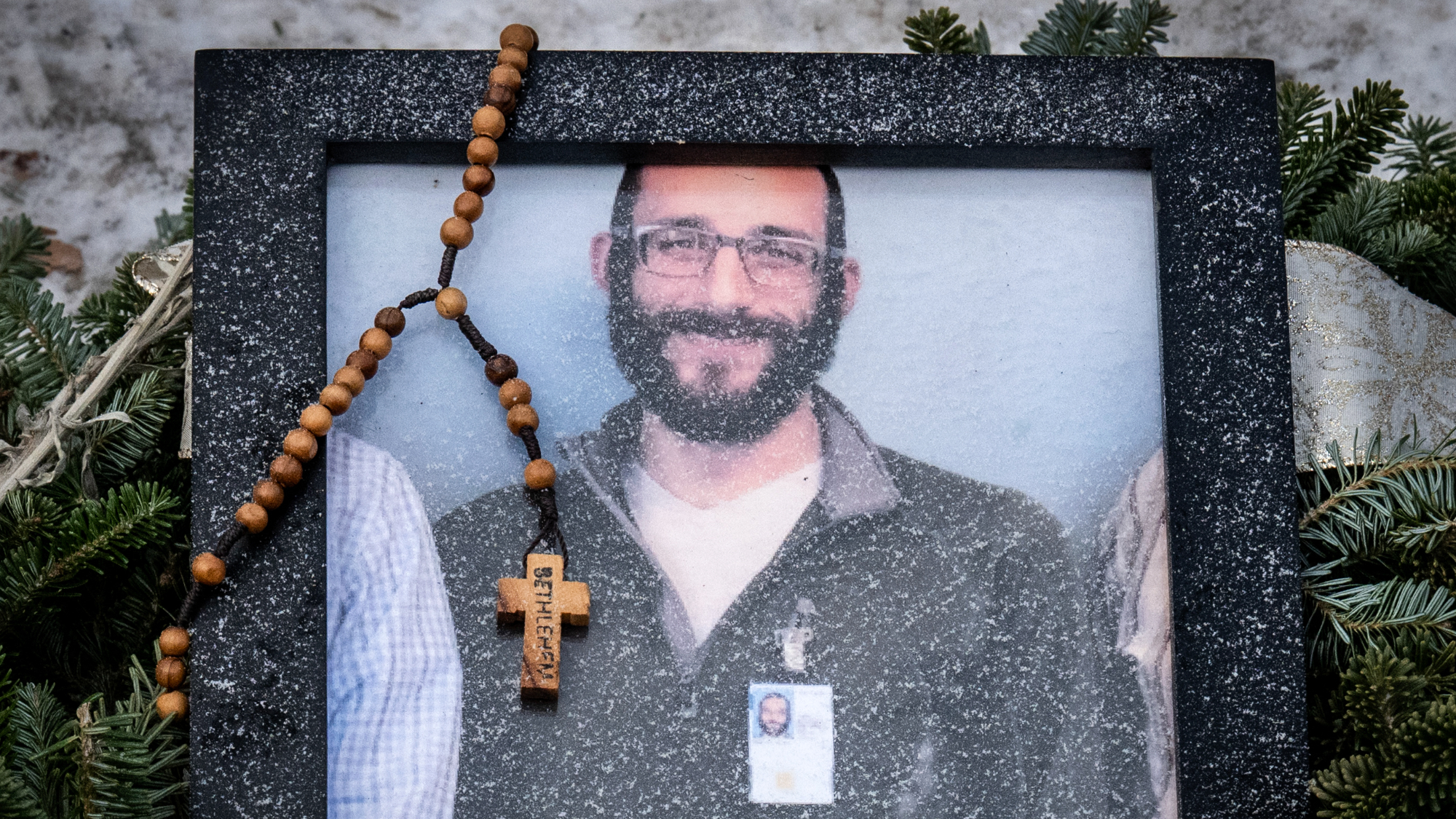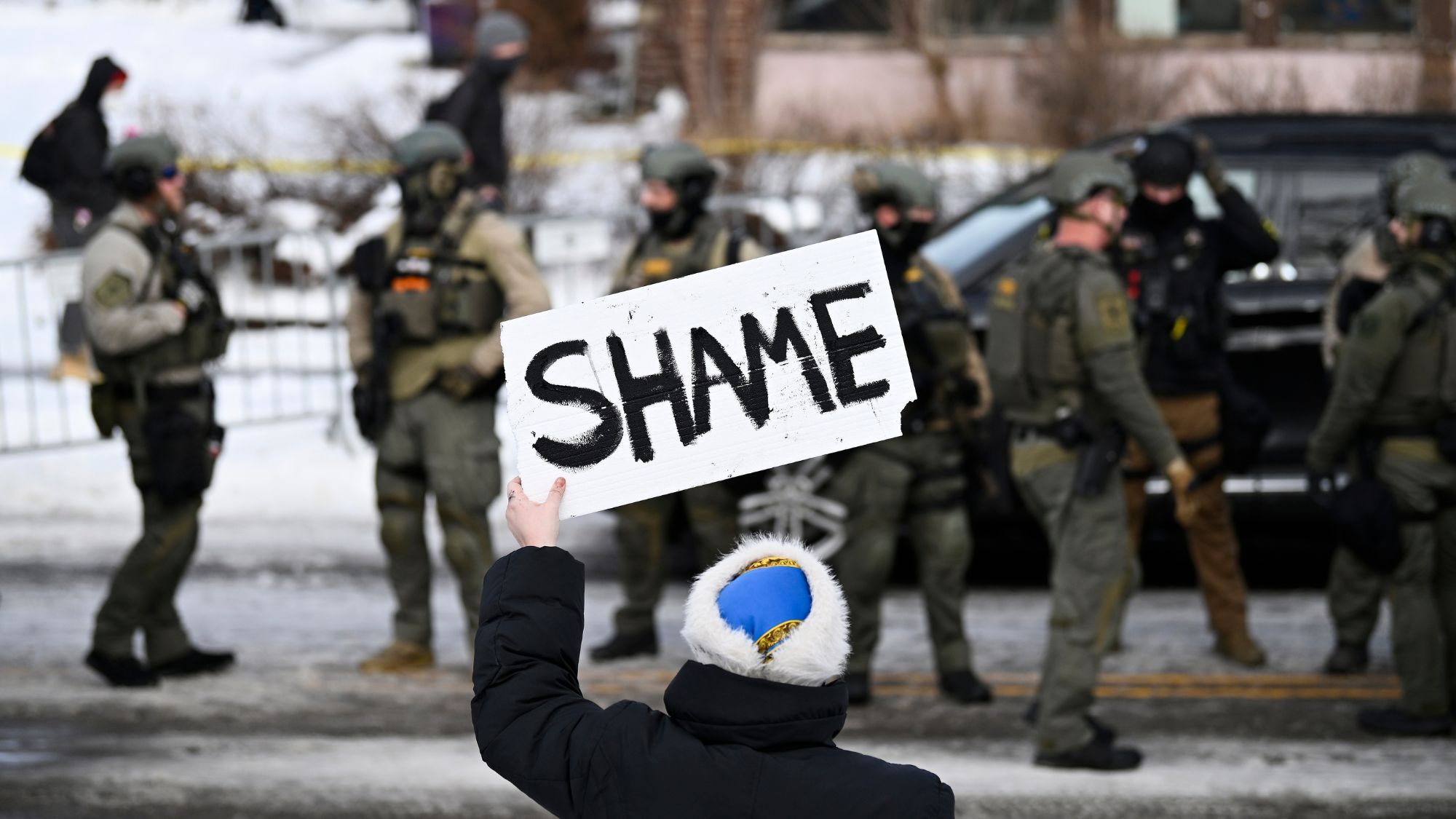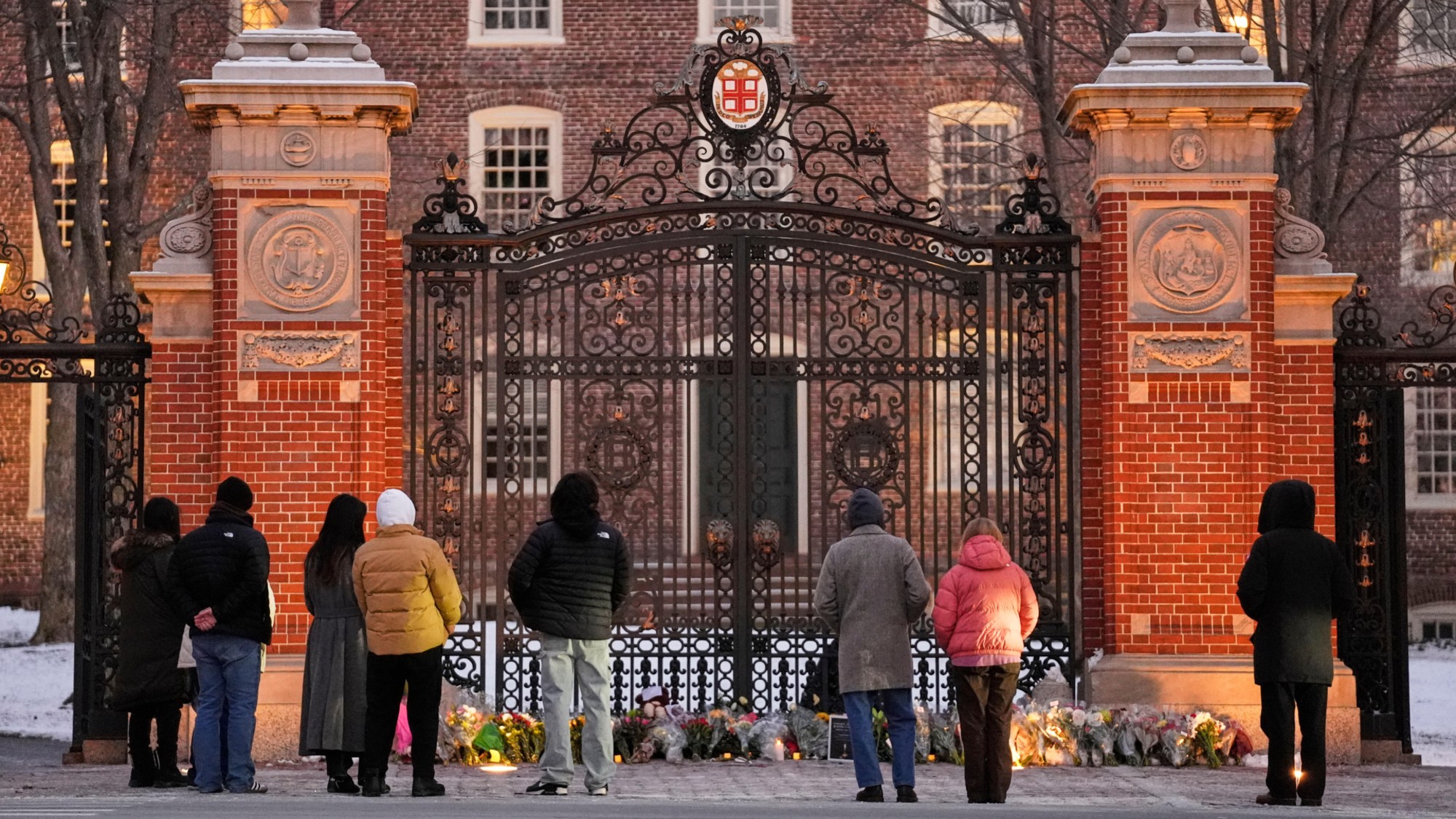The Clapham attack: a 'wake-up call'?
The shocking case may prove the British asylum system is broken but it has also been exploited for political purposes

A free daily email with the biggest news stories of the day – and the best features from TheWeek.com
You are now subscribed
Your newsletter sign-up was successful
Every aspect of the Abdul Ezedi case is "shocking", said The Times.
Ezedi, a migrant from Afghanistan, arrived in Britain illegally in a lorry in 2016. In 2018, he was given a suspended sentence at Newcastle Crown Court for sexual assault and exposure. He was then twice refused asylum, but on his third attempt, after an apparent conversion to Christianity, he was given permanent leave to remain.
Last week, Ezedi drove from Newcastle to Clapham, in London, to find a woman with whom he was acquainted. Witnesses allege that he threw a corrosive substance into her face; her injuries are said to be "life-changing". Bystanders who tried to intervene were also injured, as were the woman's two young daughters: he allegedly took one from a car, and twice smashed her onto the ground. Ezedi then fled and was last seen near Blackfriars, bearing facial injuries from the substance. Police have suggested that he may now be dead, but there are many questions that must still be answered: the Home Office must "explain why he remained in Britain after his conviction".
The Week
Escape your echo chamber. Get the facts behind the news, plus analysis from multiple perspectives.

Sign up for The Week's Free Newsletters
From our morning news briefing to a weekly Good News Newsletter, get the best of The Week delivered directly to your inbox.
From our morning news briefing to a weekly Good News Newsletter, get the best of The Week delivered directly to your inbox.
'The consequences of our human rights laws'
This should be a wake-up call, said Nick Timothy in The Daily Telegraph. "There is no better case study in the weakness of our criminal justice system, the absurdity of our immigration courts, the consequences of our human rights laws" – and the failure of our institutions to protect the public. Our asylum system is utterly broken, and it is exploited by people who despise our values.
In particular, the Church of England must take note, said Melanie Phillips in The Times. Fake conversions are now common among asylum seekers. They are used to "game the system": the courts are unwilling to deport Christians to nations where they may be persecuted, and a good word from a priest helps with the application. Nearly one in seven of the 300 migrants on the 'Bibby Stockholm' barge are now reportedly converting.
'Spurious political purposes'
Predictably, this horrific attack has been exploited for "spurious political purposes", said The Independent. Clearly, Ezedi's case has been terribly mishandled. But "most refugees, it hardly needs stating, are not violent offenders", bent on awful crimes.
The notion that someone may be shepherded through the system by their church is "simply inaccurate", said the Rt Rev Dr Guli Francis-Dehqani in The Daily Telegraph. It is the role of the Home Office to assess and vet claims; the official guidance specifically states that evidence from "a senior church member is not determinative". Though clergy may support such claims, it is certainly no "magic ticket".
A free daily email with the biggest news stories of the day – and the best features from TheWeek.com
-
 How the FCC’s ‘equal time’ rule works
How the FCC’s ‘equal time’ rule worksIn the Spotlight The law is at the heart of the Colbert-CBS conflict
-
 What is the endgame in the DHS shutdown?
What is the endgame in the DHS shutdown?Today’s Big Question Democrats want to rein in ICE’s immigration crackdown
-
 ‘Poor time management isn’t just an inconvenience’
‘Poor time management isn’t just an inconvenience’Instant Opinion Opinion, comment and editorials of the day
-
 The Epstein files: glimpses of a deeply disturbing world
The Epstein files: glimpses of a deeply disturbing worldIn the Spotlight Trove of released documents paint a picture of depravity and privilege in which men hold the cards, and women are powerless or peripheral
-
 Why have homicide rates reportedly plummeted in the last year?
Why have homicide rates reportedly plummeted in the last year?Today’s Big Question There could be more to the story than politics
-
 Demands for accountability mount in Alex Pretti killing
Demands for accountability mount in Alex Pretti killingSpeed Read Pretti was shot numerous times by an ICE agent in Minneapolis
-
 Death in Minneapolis: a shooting dividing the US
Death in Minneapolis: a shooting dividing the USIn the Spotlight Federal response to Renee Good’s shooting suggest priority is ‘vilifying Trump’s perceived enemies rather than informing the public’
-
 FBI bars Minnesota from ICE killing investigation
FBI bars Minnesota from ICE killing investigationSpeed Read The FBI had initially agreed to work with local officials
-
 ICE kills woman during Minneapolis protest
ICE kills woman during Minneapolis protestSpeed Read The 37-year-old woman appeared to be driving away when she was shot
-
 Campus security is under scrutiny again after the Brown shooting
Campus security is under scrutiny again after the Brown shootingTalking Points Questions surround a federal law called the Clery Act
-
 How the Bondi massacre unfolded
How the Bondi massacre unfoldedIn Depth Deadly terrorist attack during Hanukkah celebration in Sydney prompts review of Australia’s gun control laws and reckoning over global rise in antisemitism